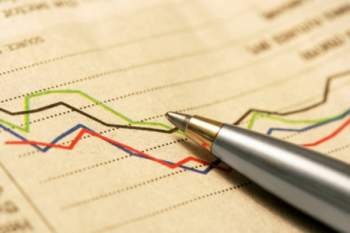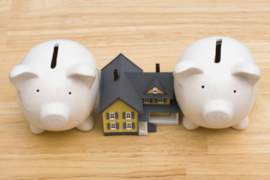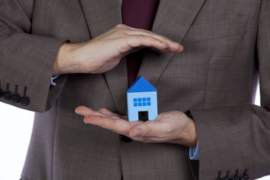
Keeping an Eye on Housing Bubbles

A housing bubble forms when prices and values in a housing market increase without substantial correlation to concrete property values, sources of income, and other economic factors. Usually they can be found to occur rapidly, or at least consistently, and can happen on various market levels.
The nature and existence of bubble markets are often debated amongst economists, as to whether or not they can be foreseen or prevented, and even whether they should be. As a matter of course, housing bubbles are commonly used by critics as proof that the market cannot regulate itself. In contrast, such a situation is also used by some economists, through a correctional pricing theory, that the market regulates itself.
House flipping is often blamed as a contributor to housing bubbles (especially the recent burst in 2005-2006), because the reselling of real estate inevitably involves an artificial increasing of property values. This necessary variable represents an unsustainable means by which to maintain income with high value, high risk, short term investments. Thus house flipping helps inflate the bubble; any properties that cannot be stabilized then become and anchor on the housing market as dead, overvalued homes...
Gentrification:
Gentrification is a term used somewhat controversially at times, The roots of the word are fairly cynical, as it refers to earlier societies, where serfs and farmers would serve on the land, either paying rent or supplying cultivation, in exchange for the right to occupy it.
House flipping has been seen in some areas as a cause for gentrification, for those looking to flip Many argue, that this process leads to the marginalization of lower income groups, which when correlated to such issues as ethnic or racial classifications, augments the controversies involving economic and societal disenfranchisement, exclusion, and exploitation. In contrast, some argue that it has been beneficial to the salvation to some areas, and played an important part in the renewal process of some communitie.
Foreclosures:
Foreclosures can play a key part in any discussion of house flipping, both as a desirable means by which to obtain property, and the unwanted end point for any property flipping endeavor.
However, when examining the effects of flipping, foreclosures can represent not only the end result of a failed attempt at flipping, but also another means by which flipping can effect the stability of the market by artificially adjusting projections. Thus, the longer a property remains unsold, the closer it can come to eventual foreclosure.
Mortgage Equity:
Mortgage equity generally is calculated from home equity, and forms the basis of the kind of mortgage or loan one can acquire in order to gain capital from their property. Mortgage equity represents any amount that can be withdrawn against the real value of a property, and is usually used as means to acquire liquid capital against the solid capital represented by home equity.
In house flipping, mortgage equity can be used as a means by which flippers acquire more income to repair a flipping property, or even engage in flipping in the first place.
Mortgage equity loan flipping is also a common scam used by immoral mortgage lenders, who attempt to get homeowners to refinance a home equity loan multiple times, convincing them that they can acquire liquid capital, but each time bilking them for new fees and closing costs.
Flipping properties for profit, due to the expected increase of home values, can be seen as inflating the home equity values beyond what they actually are, which has been an ongoing criticism of the process.
Subprime Mortgage Collapse:
One of the key factors of the recent economic downturn and the collapse of the stock market in 2008 was the catastrophic losses, and in some cases complete destruction, incurred by lending institutions and finance companies who either engaged in the proliferation or trading of sub prime mortgages. To make matters worse, some of these institutions “swapped” these loans to other organizations in exchange for stocks, similar properties, or market capital, thus spreading the catastrophic debt around and engaging in what may very well have been fraud.
A sub prime mortgage is a loan in the form of a mortgage, given below the prime interest rate in order to entice a potential homeowner into borrowing from a given institution. Such an instrument offered a lower yield mortgage to a borrower, to offer a more risky, yet profitable method to lend money. Sub prime loans offered high-interest rates to the riskiest of borrowers to offset the stability of stable investors, and to offer a more profitable means to inquire assets.
However, in the build-up to the Sub prime Mortgage collapse, these loans were given out during what was a competitive lending climate, and as a result a great multitude were given to individuals with poor or questionable credit histories and limited capacity to repay. Although unexpected by the borrower, the burst of the housing bubble in 2005-2006 made such loans highly elastic towards the economic downturn.
Not long after there was a steady increase in home foreclosure due to borrowers not being able to make their repayments, but it was not until 2008, that the market began to collapse under the weight of bad loans and foreclosed properties.
The house flipping industry perpetuated the bursting of the real estate bubble, due in large part to the increase in the acquisition of sub prime mortgages by flippers and also potential buyers. As a result of the deregulation, seemingly anyone could participate in the act of flipping a house. Such an instance not only increased the amount of riskier borrowers in the system but also inflated, due to a constant demand, the values of property.
NEXT: Know The Types of House Flipping





















